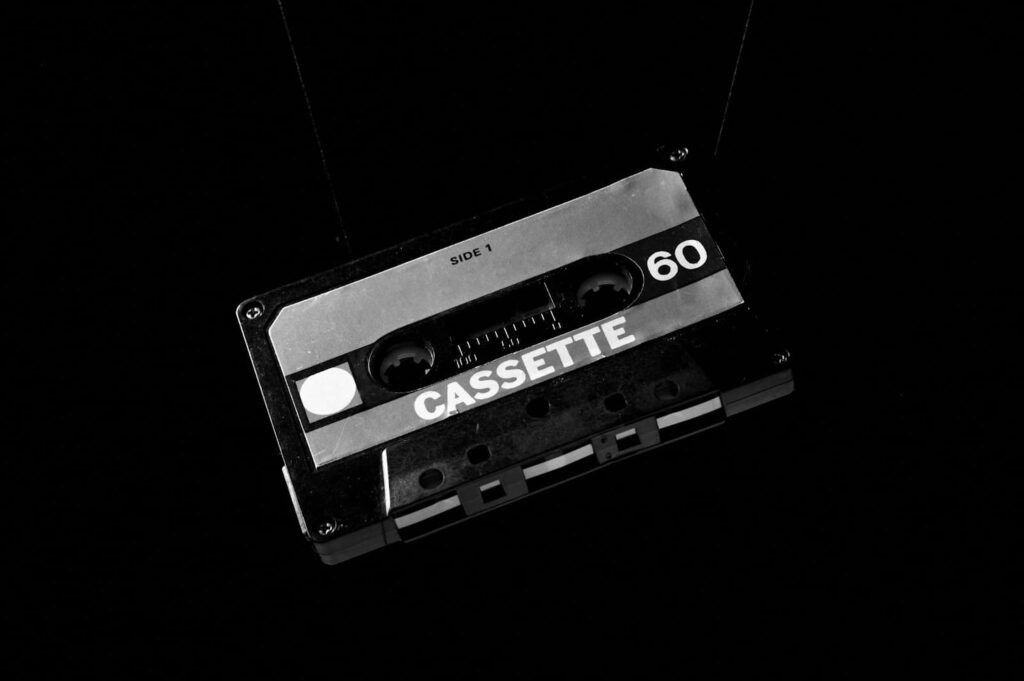Some genres fade away, replaced by new trends and sounds, but garage rock refuses to die. Decades after its explosion in the 1960s, this raw, unpolished, and fiercely independent form of rock still resonates with musicians and fans alike. Why does it continue to captivate new generations, despite evolving tastes and production techniques?
Garage rock has always been about energy, attitude, and authenticity. Stripped-down instrumentation, distorted guitars, and lo-fi recordings create a sense of urgency and excitement that mainstream music often lacks. In an era dominated by polished digital production and algorithm-driven trends, garage rock stands out as a reminder that music doesn’t have to be perfect—it just has to be real.
But what keeps it alive? Is it nostalgia, or is there something deeper that continues to inspire musicians to pick up a guitar, plug into a cheap amp, and thrash out loud, untamed riffs?
What Makes Garage Rock So Timeless?
Garage rock isn’t just a style—it’s a philosophy. At its core, it represents freedom, rebellion, and a DIY spirit that has influenced generations of musicians. But what specific elements make it so enduring?
- Raw Simplicity – You don’t need expensive gear or classical training to play garage rock. If you’ve got passion, a few chords, and something to say, you’re in.
- Authenticity Over Perfection – Unlike many overproduced genres, garage rock thrives on imperfections—mistakes, fuzz, feedback, and chaotic energy are all part of the magic.
- Relatable Lyrics – Garage rock songs are often about teenage angst, love, rebellion, and frustration—universal themes that transcend generations.
- A Gateway to Other Genres – Many punk, alternative, and indie musicians started with garage rock before developing their own sound.
- DIY Spirit – The “anyone can do it” attitude of garage rock is deeply inspiring, pushing musicians to start bands, record songs, and tour with minimal resources.
At a time when music production is more accessible than ever, garage rock continues to prove that great music isn’t about high budgets—it’s about passion.
Comparing Garage Rock Across Generations
| Era | Key Bands | Sound Characteristics | Cultural Impact |
|---|---|---|---|
| 1960s | The Sonics, The Kinks, The Standells | Fuzzy guitars, simple song structures, rebellious lyrics | Birth of DIY rock, pre-punk movement |
| 1970s-80s | The Cramps, The Fuzztones, The Gun Club | More distortion, horror and blues influences | Inspired punk and post-punk scenes |
| 1990s-2000s | The White Stripes, The Hives, The Strokes | Modern production but raw energy intact | Garage rock revival, mainstream success |
| 2010s-Present | Ty Segall, Thee Oh Sees, King Gizzard & The Lizard Wizard | Psychedelic and experimental elements | Underground resurgence, festival circuit popularity |
Each wave of garage rock builds upon the last, evolving while maintaining its core principles. The accessibility of the genre allows new artists to emerge constantly, keeping the sound fresh and relevant.
Why New Generations Keep Coming Back to Garage Rock
Despite changing musical landscapes, young musicians keep rediscovering garage rock. But why does it still appeal to new generations?

- A Reaction to Overproduction – Many young musicians reject the sterile sound of mainstream pop and seek something more visceral.
- A Platform for Self-Expression – Garage rock’s DIY ethos allows new artists to tell their own stories without industry interference.
- The Live Experience – In a world of digital music, garage rock thrives in small, sweaty venues where the energy is tangible.
- Aesthetics and Nostalgia – The lo-fi aesthetic and vintage appeal of garage rock resonate with younger audiences exploring older music.
- Endless Reinvention – Each generation of musicians adds new influences, keeping the genre from becoming stagnant.
Garage rock remains a musical rebellion—a space where imperfection is celebrated, individuality is encouraged, and passion matters more than technical ability.
The Future of Garage Rock: Still Alive and Kicking
Garage rock isn’t just surviving—it’s thriving. The vinyl revival, the resurgence of small music venues, and the rise of independent artists on streaming platforms all contribute to keeping the genre alive. With bands constantly emerging from garages, basements, and DIY studios worldwide, it’s clear that garage rock isn’t going anywhere.
The question isn’t whether garage rock will fade away—it’s who will carry the torch next? Will the next wave of garage rock bands bring a new sound, or will they stay true to the gritty energy of the past? One thing is certain: as long as there are guitars, amps, and people with something to say, garage rock will continue to inspire generations to come.
FAQ
What role does technology play in keeping garage rock alive today?
While garage rock thrives on a raw, analog aesthetic, modern streaming platforms and digital recording tools help new bands reach global audiences.
How has garage rock influenced punk, grunge, and indie rock?
Its DIY ethos, raw sound, and anti-establishment attitude paved the way for all three genres, proving that music doesn’t have to be polished to be powerful.
Can garage rock remain relevant in a world dominated by digital production?
Yes—its rebellious nature makes it a countercultural force against overproduced music, appealing to those who crave authenticity.


